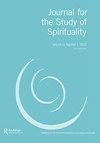Editorial
IF 0.8
0 RELIGION
引用次数: 0
Abstract
I recently had the pleasure of watching James Lovelock being interviewed during a conference on The Future of Global Systems Thinking, held here at the University of Exeter. The event was a celebration of Lovelock’s 100th birthday and of his pioneering approach to thinking about planet Earth as a living system. Although Lovelock’s (1979) ‘Gaia hypothesis’, which proposed that the Earth is a single, self-regulating entity, has been a major influence on the subsequent interdisciplinary development of Earth system science, it was initially met with considerable resistance and ridicule from the scientific community. It seemed, nevertheless, to capture the imagination of large numbers of people in a way that Lovelock later said had surprised him (Joseph 1991, 70). Within less than a decade, the political and other implications of Gaia were being explored and advanced by a number of influential writers (Thompson 1987 summarises). Whether or not people understood or accepted even the basic premise of the scientific hypothesis, the evocative image and name of Gaia – the ancient Earth Goddess – that Lovelock attached to it seemed to offer a rallying cry for those seeking to understand the world in terms and structures other than those of the so-called ‘clockwork universe’. The clockwork worldview became dominant in Western societies in the wake of Cartesian and Newtonian physics which suggested that all phenomena could be explained in terms of mechanics (Dolnick 2012). The notion that, like the universe itself, human society can also be understood in clockwork, machine-like terms remains embedded in much political and organizational thinking. This is due, in part, to F.W. Taylor’s work on ‘scientific management’ at the turn of the twentieth century. Whitehead says of it:编辑
最近,我有幸在埃克塞特大学举行的“全球系统思维的未来”会议上观看了詹姆斯·洛夫洛克(James Lovelock)的采访。这次活动是为了庆祝洛夫洛克的100岁生日,以及他将地球视为一个生命系统的开创性方法。尽管洛夫洛克(1979)的“盖亚假说”(Gaia hypothesis)提出地球是一个单一的、自我调节的实体,对随后地球系统科学的跨学科发展产生了重大影响,但它最初遭到了科学界的相当大的抵制和嘲笑。然而,它似乎以一种洛夫洛克后来说令他吃惊的方式抓住了许多人的想象力(Joseph 1991,70)。在不到十年的时间里,盖亚的政治和其他含义被许多有影响力的作家探索和推进(Thompson 1987总结)。无论人们是否理解或接受科学假设的基本前提,洛夫洛克所赋予的盖亚(古代大地女神)的形象和名字似乎为那些寻求从术语和结构上理解世界的人提供了一个战斗口号,而不是那些所谓的“发条宇宙”。在笛卡尔和牛顿物理学提出所有现象都可以用力学来解释之后,时钟世界观在西方社会占据主导地位(Dolnick 2012)。像宇宙本身一样,人类社会也可以被理解为像时钟一样,像机器一样,这种观念仍然植根于许多政治和组织思想中。这在一定程度上要归功于泰勒在20世纪初对“科学管理”的研究。怀特黑德说:
本文章由计算机程序翻译,如有差异,请以英文原文为准。
求助全文
约1分钟内获得全文
求助全文
来源期刊

Journal for the Study of Spirituality
RELIGION-
CiteScore
2.50
自引率
7.10%
发文量
25
期刊介绍:
Journal for the Study of Spirituality is a peer-reviewed journal which creates a unique interdisciplinary, inter-professional and cross-cultural forum where researchers, scholars and others engaged in the study and practices of spirituality can share and debate the research, knowledge, wisdom and insight associated with spirituality and contemporary spirituality studies. The British Association for the Study of Spirituality (BASS) organises a biennial international conference and welcomes enquiries about membership from those interested in the study of spirituality in the UK and worldwide. The journal is concerned with what spirituality means, and how it is expressed, in individuals’ lives and communities and in professional practice settings; and with the impact and implications of spirituality in, and on, social policy, organizational practices and personal and professional development. The journal recognises that spirituality and spiritual values can be expressed and studied in secular contexts, including in scientific and professional practice settings, as well as within faith and wisdom traditions. Thus, Journal for the Study of Spirituality particularly welcomes contributions that: identify new agendas for research into spirituality within and across subject disciplines and professions; explore different epistemological and methodological approaches to the study of spirituality; introduce comparative perspectives and insights drawn from different cultures and/or professional practice settings; aim to apply and develop sustained reflection, investigation and critique in relation to spirituality and spiritual practices; critically examine the values and presuppositions underpinning different forms of spirituality and spiritual practices; incorporate different forms of writing and expressions of spirituality.
 求助内容:
求助内容: 应助结果提醒方式:
应助结果提醒方式:


